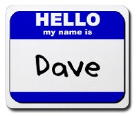Every news org should have a river
 To me it's self-evident that every news organization, like every blog, should define a community of bloggers. People who write with passion about their expertise. I've been writing about this, evangelically, since the mid-90s. Still there are very few rivers out there. Someday they will be a fixture. It will be self-evident to everyone else too. To me it's self-evident that every news organization, like every blog, should define a community of bloggers. People who write with passion about their expertise. I've been writing about this, evangelically, since the mid-90s. Still there are very few rivers out there. Someday they will be a fixture. It will be self-evident to everyone else too. 1. News organizations are shrinking, but readers' demand for news isn't. This has been true for the last 15 years, and shows no signs of letting up.
2. The tools of news are available to more people all the time. Blogs, podcasting, video, audio, realtime distribution, low-cost networking, cloud servers, mobile devices. And meanwhile the software keeps getting easier to use.
3. News organizations have to redefine themselves. Yes, their mission is still centered on what it has always been. Getting valuable and timely information to people in their community. Some define community in terms of geography, others in terms of a common interest like photography, travel, food.
4. Users have a special kind of insight that most news orgs don't tap. You can get a review from a famous columnist, a Pogue, Mossberg, Gruber or Levy, and you can get a review from a user, later -- perhaps in more depth (they had more time) and more likely to relate to experiences a user would actually have with the product (because they are users).
5. Therefore, the challenge for news organizations has been, for the last couple of decades, to learn how to incorporate the experience of these users and their new publishing tools, into their product -- the news.
6. Like anything else related to technology, this will happen slowly and iteratively. It takes generations for the kind of change that is happening in news to be fully realized. So if you see this coming, take whatever steps you can, when you can. This is an attempt to reserve a seat at the table for yourself when the revolution is finished sweeping through news.
7. The first thing you can do is show the readers what you're reading. The Times is starting to do this, and it's good -- but it should be systematic, and it can go much further. And once you've shown them what pubs you're reading, a natural next step is to aggregate them into a river, a newsfeed of postings from all the blogs and news orgs you follow. This accomplishes many important things. It gets more news to flow through your site, which makes your site more valuable to more people. It also tells the people you read that you're reading them. And it gives them something to kvell about. It creates a bond between you and them, and it cost you almost nothing to do this. It will give you access to their ideas. And it will help their ideas get heard. And it will make your venue the place people go to get the latest and greatest ideas. Look at how many ways you win!
8. Having the river will also focus your mind. You'll see trends you wouldn't otherwise see. You'll get ideas for stories you wouldn't otherwise get. Seeing things from other people's perspective always does that. You see things you didn't see before. Seems almost self-evident, but until you do it, you don't experience it, and experience is very important here.
9. Then, once your river is up and running for a while, have a meeting with all your bloggers. Get someone who is respected and well-known in your community give a keynote. Sit back and listen to what people talk about. Again, your mind will open, you'll get tons of new ideas.
Starting a river is the first step down the road to the future. It defines community. Gives you a way to experience it. And honestly, it gives new power to your role as gatekeeper.
How do you start a river? For the first few pubs, I'll get you started. I have a server I've started that can run five to ten of them. I'm already doing one for my friend Jeremy Zilar at the Times. I've got a project started with the editors of Wired. I'd like to do a few more. Because for me, as a software developer and evangelist, my community is publishers of news. By helping you get your rivers started, if you choose to do it, I will learn from your experience, learn how to improve the software to better meet all our needs, and help further the integration of all kinds of news gathering into the flow of news.
How do you start a river, from a content point of view? It's just a list of feeds. You can add to the list, or remove from the list. You're the curator, though you're not just curating stories, you're curating flows. The software is easy to use, I've spent many years working on that, but for some reason people are scared of it. So I will get it started for you, and when you're ready, you can take over.
|